Lockdown rush for Covid-19 vaccines
Victoria is the first state to administer more than 40,000 vaccines in a day as take-up rates accelerate in the wake of a crushing seven-day lockdown.
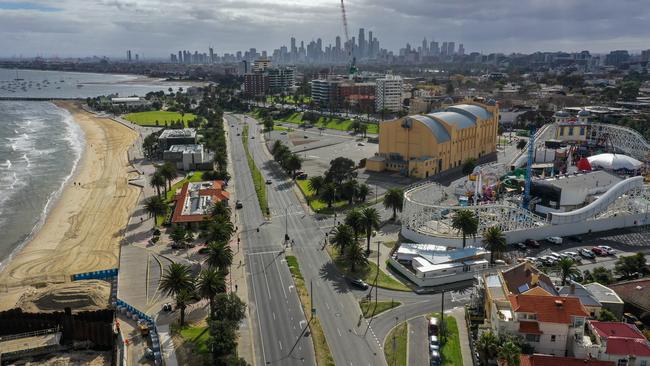
Victoria is the first state to administer more than 40,000 vaccines in a day as take-up rates accelerate in the wake of a crushing seven-day lockdown, and chief medical officer Paul Kelly sounds a fresh warning that further community outbreaks are inevitable.
On Friday, Victorians aged between 40 and 49 years could arrange for an immediate Pfizer jab by calling the state health department’s coronavirus hotline.
The system crashed after 77,000 calls were made in the first 15 minutes. As of 9am on Friday, 12,000 people had successfully made appointments.
Daily vaccine increases in Victoria in the previous working week ranged from a low of 21,741 on Friday to a high of 26,553 the previous day, but this week grew to 41,389 on Thursday — the day the lockdown was announced.
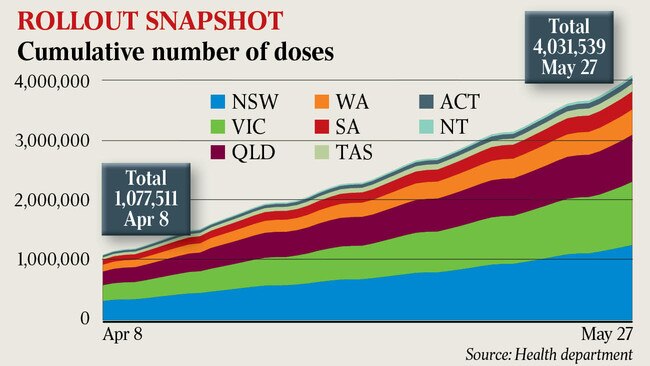
Professor Kelly has labelled the unfolding crisis in Victoria a “wake-up call for Australians” and urged everyone eligible to be vaccinated. “Australians living outside of Victoria might think there is little community transmission of Covid-19 where they live – and so question why they need to vaccinate now,” Professor Kelly writes in an opinion piece for The Weekend Australian.
“The answer is that it is inevitable at some point that there will be sustained outbreaks in our community – and not just in Victoria. It’s not a matter of if; it’s a matter of when.”
Professor Kelly also said on Friday that Australia’s immunisation advisory group would review its decision to block under 50s from receiving AstraZeneca jabs next week based on the situation in Victoria as well as its assessment of the vaccine’s risks and benefits.
The government will take advice from the Australian Technical Advisory Group on Immunisation about whether to prioritise the administration of more first doses rather then hold vaccines in reserve for second jabs.
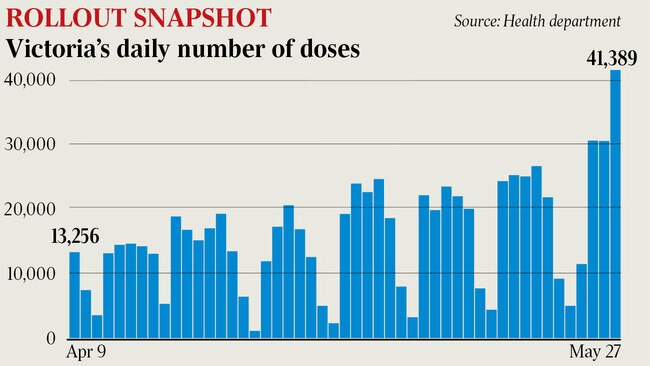
Health Minister Greg Hunt said a total of about 737,000 vaccines had been delivered to Victoria and, as of Wednesday, 422,000 vaccines had been administered by the state. However, he said it was important the nation always had enough supplies for second doses, particularly given the short turnaround between doses of the Pfizer vaccine.
Amid growing demands for a faster vaccine rollout, corporate heavyweight Richard Goyder told The Weekend Australian it was imperative “to get as many people vaccinated as quickly as we can” and for society to come together to overcome vaccine hesitancy.
The chairman of Qantas, Woodside Petroleum and the AFL Commission said he hoped other companies followed the example of the national carrier in offering vaccination incentives, declaring it “more about a carrot than a stick.”
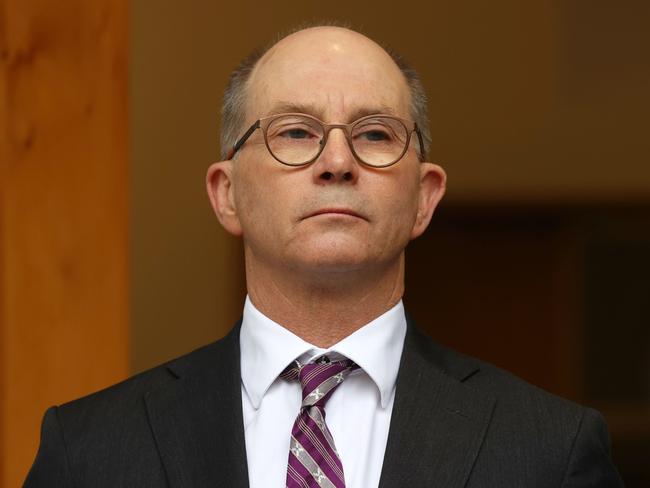
“Everyone has a responsibility to do the right thing through getting tested and signing in,” Mr Goyder said. “That means people doing it, even if they don’t think they need it … Doing it for the community, doing it for their family and their friends. I have had people say to me ‘I don’t need to have a vaccine’. What has happened in Victoria is a wake-up call that we do. And we need to protect ourselves but also the communities in which we live.”
Mr Goyder said Qantas — which is likely to offer flight vouchers, frequent flyer points or status credits as vaccination incentives — had lost $2.7 billion last year. “With what is going on in Melbourne, we will lose more than $2 billion this year,” he added.
More than 4 million Australians had received jabs by the end of Thursday with Mr Hunt revealing that more than 41,000 Victorians and 124,871 people across the nation had received a vaccination within the previous 24 hours.
While Victoria broke the 40,000 barrier on Thursday, NSW had a daily vaccination increase of 37,570 – its best result to date – while the next best performer was Queensland with a daily increase of 21,669 jabs. “What we have seen is record numbers of vaccinations in Victoria and record numbers of vaccinations Australia-wide,” Mr Hunt said.
He said the situation in Victoria was different from the extended second lockdown last year because contract tracing in the state had improved and the lockdown had been imposed more swiftly. He also argued that all commonwealth residential aged care facilities in the state would be vaccinated by Friday night.
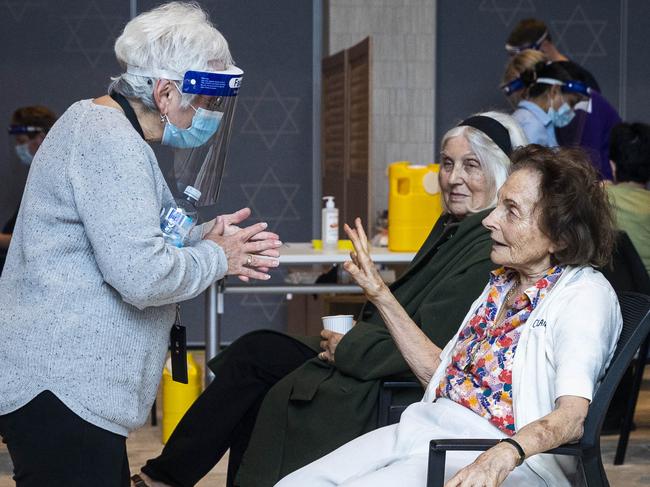
“So those three things mean this is a very different outbreak than a year ago,” Mr Hunt said. “Nevertheless, we have to watch, and we have to do all that we can to assist. On that front, the commonwealth will be providing 160 Defence personnel to assist Victoria.
“In particular, this will assist with compliance and other tasks relating to close contacts that allows Victorian authorities to be deeply engaged in the contact tracing program.”
Professor Kelly said on Friday that ATAGI was “reviewing the evidence all the time” and would consider the situation on the ground in Victoria after advising AstraZenca be limited to those aged 50 and over.
Writing in The Weekend Australian, Professor Kelly said taking the vaccine would protect Australians, especially older Australians, from “severe illness and possibly death from Covid-19” and “reduce the transmission of the virus to others”. He argued it would help allow international borders to open and return life to normal.
“Widespread vaccination will give us the confidence to live with fewer restrictions, knowing our population will be protected against the worst effects of Covid-19,” he said. “We see the evidence of this in countries such as the United Kingdom and the US.”
Widespread take-up would also “give Australians more certainty that we won’t have to impose snap lockdowns or close domestic borders” and restore business confidence.
Additional reporting: Glenda Korporaal







To join the conversation, please log in. Don't have an account? Register
Join the conversation, you are commenting as Logout